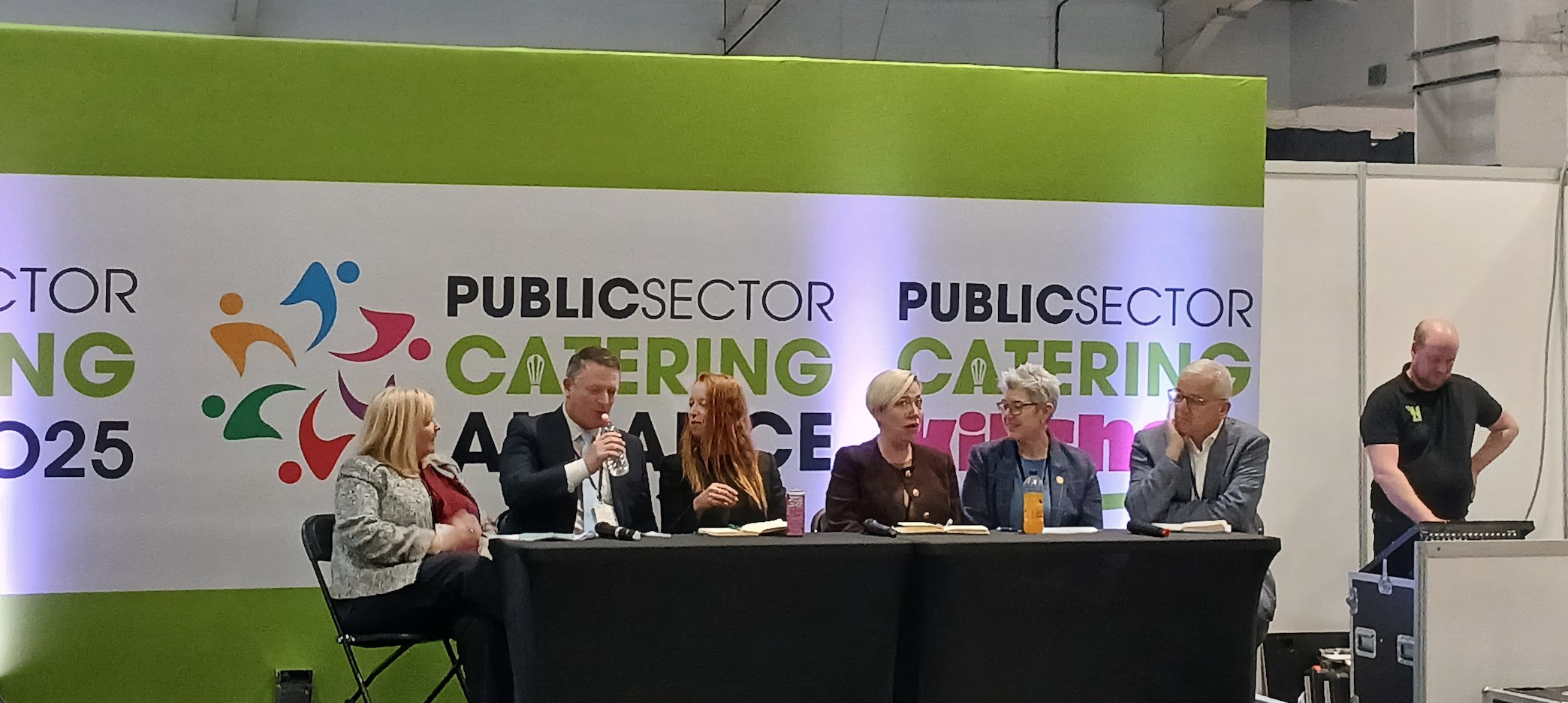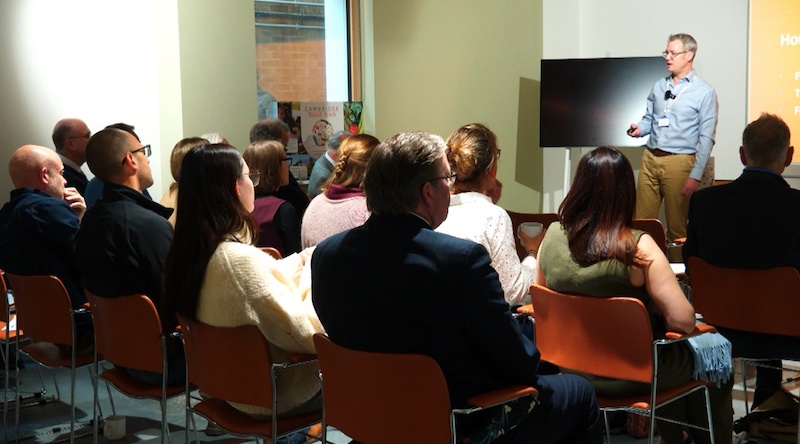Growing Communities and Sustain hosted local authorities from London to celebrate the Hackney School Food Pilot and share learnings.
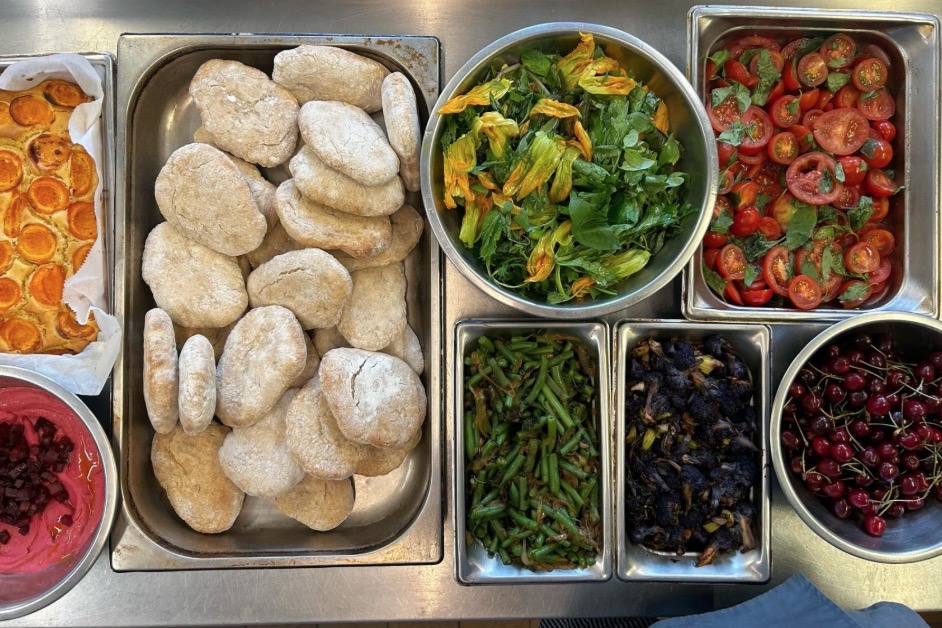
As part of the Hackney School Food Pilot, Growing Communities and its wholesale arm, the Better Food Shed, joined forces with school chef James Taylor to introduce organic fruit and veg into every meal in two primary schools – Sir Thomas Abney and Harrington Hill - in Hackney, London. They have achieved this without driving up costs or compromising quality.
The pilot is one of nine flagship initiatives participating in the nationwide Bridging the Gap programme, which aimed to demonstrate ways to enable people on a low income to access climate and nature friendly food. The programme was led by Sustain, Growing Communities and Alexandra Rose Charity with nation partners Food Sense Wales, Nourish NI and Nourish Scotland.
In order to celebrate the Hackney School Food Pilot, which ran from May 2024 to July 2025, Growing Communities and Sustain hosted an event that brought together local authority officers and decision makers who work across procurement, climate and public health.
The event’s aim was to share key learnings from the pilot, along with discussion of the practical steps local authorities can take to introduce sustainable fruit and veg into public sector procurement in London. Relatedly, participants explored how councils, caterers, Growing Communities' Better Food Shed and Sustain can work together to unlock barriers and meet sustainable food procurement targets.
The celebration took place at Harrington Hill Primary School, offering not only a wonderful meal but also a chance to look at the school kitchen facilities and see how sustainable practices are being implemented on the ground. The results were not only inspiring—they were delicious.
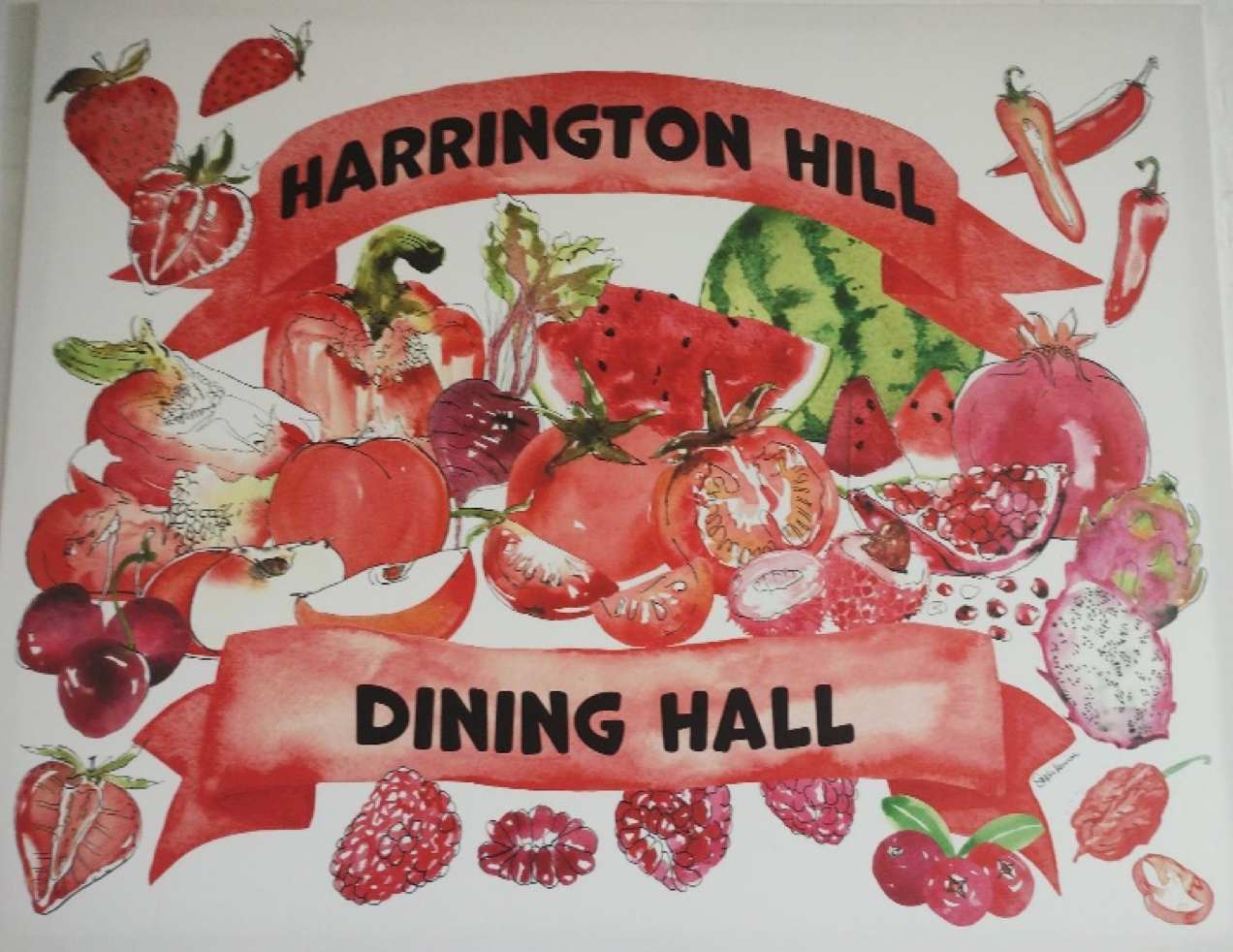
A Taste of Sustainability
The event opened with a vibrant vegetarian school lunch prepared by Head Chef James Taylor, using organic and seasonal produce sourced from the Better Food Shed (see feature image. Photo: James Taylor). One highlight was the roasted purple cauliflower—rich in flavour and symbolic of the colourful potential of school meals in terms of quality ingredients. James shared his commitment to cooking from scratch using the best ingredients available.
Through regular engagement events for families and children, and working closely with Zosia Walczak from Growing Communities and the Better Food Shed team, James was able to significantly increase the quantity of organic produce in school meals, and especially produce bought from the most local farmers. His commitment extended beyond the kitchen, involving farm visits with pupils and tasting events with parents, helping to create a culture of food appreciation and sustainability.
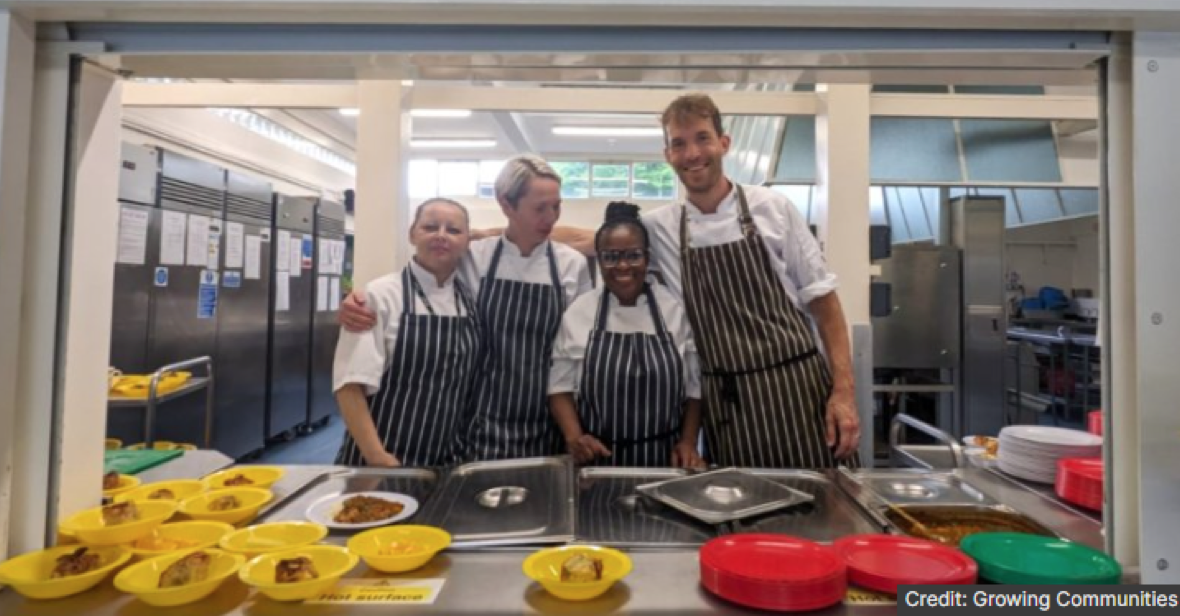
Behind the Shed Door
Danny Fisher from the Better Food Shed talked about the organisation's innovative approach to food distribution. As a non-profit wholesaler, Better Food Shed works directly with 25 UK-based organic producers, ensuring that the majority of their produce comes from within 70-80 miles of East London. This place-based model minimises waste and keeps costs low. Danny explained that the Shed buys exactly what farmers grow, enabling them to plan better and reduce surplus. Their supply reaches not just schools, but also NHS services, social care providers, and community kitchens, demonstrating a replicable and scalable model for sustainable food procurement.
Sowing the Seeds of Change
Zosia Walczak from Growing Communities gave compelling insights into the pilot’s broader impact on climate, health, and food systems. Zosia stressed the importance of seasonality and managing supply risk—ensuring that what’s grown will be used. One of the key challenges, she said, is that schools are on holiday when many favourite seasonal varieties are available from organic UK farms.
During the event, we had the opportunity to explore Harrington Hill’s dining environment—and what stood out was the clear attention to inclusivity. The pupils come from richly diverse ethnic backgrounds, and the school celebrates this diversity in subtle but meaningful ways. In the dining hall, clocks displayed the time in different global capitals that reflect the children’s heritage. This small gesture was a powerful reminder of the importance of belonging and representation in educational spaces.
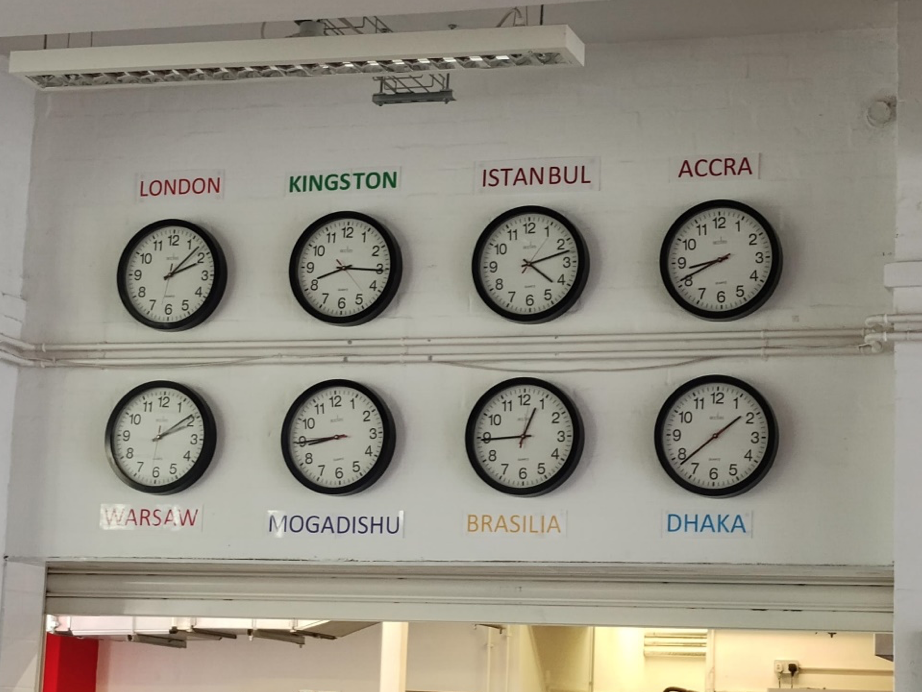
Barriers and Good Practices
After the presentations, attendees—including local authority officers, public health professionals, and caterers—broke into discussion groups to explore practical steps forward for sustainable food procurement across London. Key themes included:
- Training for school chefs on reducing meat in menus and creating delicious, plant-based meals.
- Engagement with families, ensuring they understand and support the shift to healthier school meals.
- Workforce challenges, such as the lack of kitchen support staff.
- Policy integration, including a potential expansion of environmental officers’ roles to include menu assessment.
- Development of a standardised healthy school meals framework that includes sustainability and provenance.
- Supplier engagement, with an emphasis on negotiating longer-term, values-led contracts.
The event also highlighted the alignment of this work with the London Food Purchasing Commitment, which aims to support public sector food buyers to source more sustainably and transparently.
Looking ahead
The Hackney School Food Pilot is a powerful example of how we can shift school food systems to support better health, climate resilience, and food equity. By building strong relationships between growers, suppliers, schools and families—and focusing on affordability and access—this pilot demonstrates that organic, sustainable food need not be a luxury. With thoughtful procurement strategies and local authority leadership, this model could—and should—be expanded across the UK.
With support from the ESRC-funded Procurement for Good project, Growing Communities and Better Food Shed are now aiming to expand the supply of sustainably produced food to other schools and explore opportunities with more public institutions across London over the next three years. This work will build on the foundation laid in Hackney and continue to transform public food procurement in ways that benefit people, planet and producers.
Latest news
